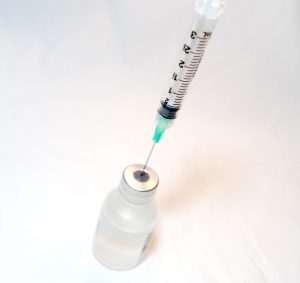With India’s drug regulatory authority, the Central Drugs Standard Control Organization (CDSCO), approving emergency use of two coronavirus vaccines, Covishield and Covaxin, the world’s biggest vaccination drive is poised for take-off.
Vaccination of some 300 million frontline health workers, the elderly, and people with co-morbidities is set to begin on January 13. The country has a total population of 1.3 billion.
India is among the countries worst hit by the COVID-19 pandemic. With 10,374,93 coronavirus infections, it has the world’s second largest COVID-19 caseload. While the number of daily infections has been falling in recent weeks, there is concern over new variants of the virus hitting the country.
Approval of the vaccines was therefore a positive development that was expected to give India’s fight against the coronavirus a shot in the arm.
However, the vaccination drive has run into controversy even before its roll-out, with vaccine experts raising questions about the vaccine’s efficacy.
Covishield, developed by AstraZeneca and Oxford University, is being manufactured by the Serum Institute of India (SII) while Covaxin was developed locally by Bharat Biotech with the government-run Indian Council for Medical Research.
Both manufacturers have impressive experience in the field; SII is the world’s largest vaccine manufacturer and Bharat Biotech is a reputed drug manufacturer that has played an important role in the world’s fight against the rotavirus, hepatitis, Zika, and Japanese encephalitis.
So why have the vaccine approvals kicked up heated debate in the country?
Covishield has undergone Phase 3 trials in the U.K. as well as India. While data from the U.K. trials indicates 70.4 percent efficacy, data from Phase 3 of the Indian trials has not been made public yet. As for Covaxin, Phase 3 trials are still underway. No data is available regarding its efficacy.
Vaccine experts are questioning the government’s decision to approve the vaccines in the absence of adequate efficacy data.
“There is absolutely no efficacy data [on Covaxin] that has been presented [to India’s drug control authority] or published [in medical journals]” by Bharat Biotech, Gagandeep Kang, a professor at the Christian Medical College, Vellore and a leading Indian expert on the subject has pointed out.
“I’m completely unaware of any data that suggests that Covaxin has any efficacy against any SARS-CoV-2 strain, let alone the U.K. strain,” she said.
So why did the government rush to approve the vaccines before the completion of Phase 3 trials by Bharat Biotech? Did vaccine nationalism prompt India’s Bharatiya Janata Party (BJP) government to rush with approval for the indigenous Covaxin?
Since coming to power in 2014, the Hindu nationalist BJP has intensified its championing of a muscular nationalism. Prime Minister Narendra Modi and his ministers have often highlighted India’s scientific achievements, even drawing on myth and falsehood to burnish their sometimes exaggerated claims.
That a section of the country’s scientific establishment was mixing the quest for a vaccine with nationalism was evident in July last year when it emerged that the Indian Council of Medical Research’s director general Balram Bhargava had written to research institutions calling on them to have a vaccine ready for roll-out by August 15, India’s Independence Day. He was widely criticized for rushing the process for the quest for an effective vaccine, a process that was expected to take many months.
The possibility of national pride overriding due scientific process in approving the vaccines cannot be ruled out.
By granting approvals before securing hard efficacy data, the government has dealt a blow to the vaccination drive. Public skepticism over the efficacy of the vaccine is bound to inhibit people from getting vaccinated.
Opposition politicians are also eroding public confidence in the COVID-19 vaccines. Describing the vaccine as a “BJP vaccine,” Samajwadi Party (SP) chief Akhilesh Yadav said he would stay away from being vaccinated and urged others to do the same. Another SP leader has warned that the vaccine could turn people impotent.
At the press briefing where the vaccine approval was announced, CDSCO chief V. D. Somani declared that the vaccine is “100 percent safe.”
The Indian government should release efficacy data to support the claim.
Otherwise, India’s political leaders, starting with Modi, should take the first vaccine shots in public to convince people that these are safe vaccines.

































